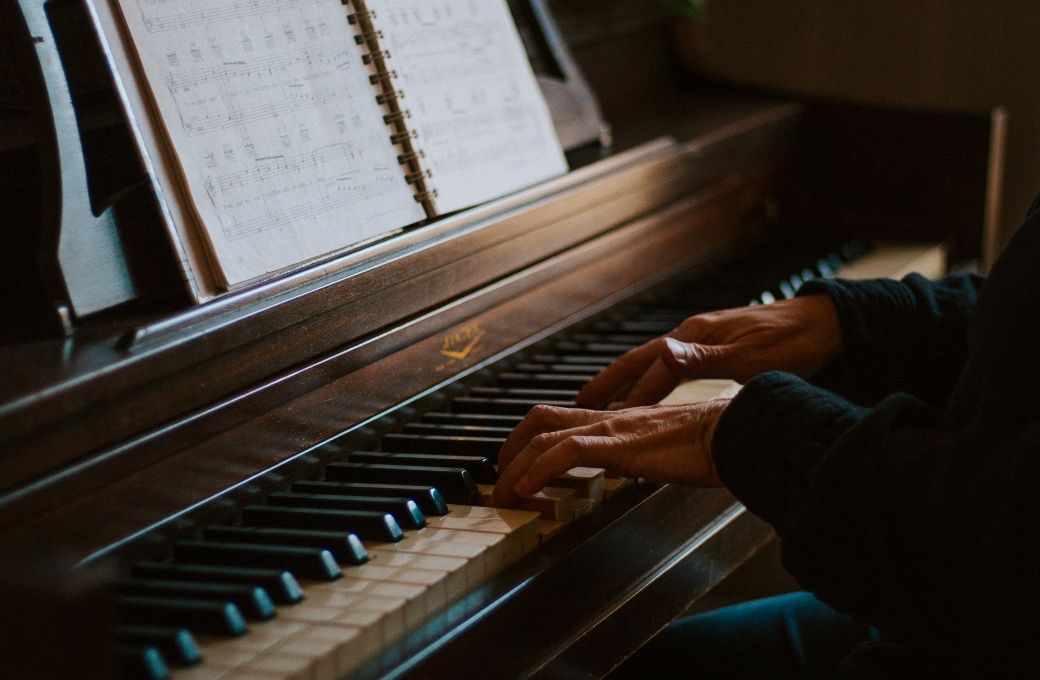In a recital space somewhere in central London a group of people are seated in a rough semi-circle around a Fazioli 212 grand piano. Some lounge in their seats in a pretence of relaxation, others crane forward eagerly for a view of the keyboard, many clutch music scores. The young man seated at the piano composes himself for a moment, takes a deep breath, and then lifts his hands and launches into the iconic opening bars of Rachmaninov’s G minor Prelude. The music soars from the piano, filling the space. The small audience listens attentively, and at the end there is enthusiastic applause. Welcome to the world of amateur pianism.

How do we define “amateur”? These days, the word has become synonymous with “hobbyist”, or the dilettante, suggesting a certain maladroitness. Yet many of the amateur pianists I meet through my involvement in a popular London-based piano group are anything but maladroit: a number play to a near-professional standard and some have studied at music college or conservatoire, but have chosen a different career path to music, perhaps not having the requisite artistic temperament or the extreme single-mindedness to hack it as a professional pianist.
“Amateur” also suggests that one engages in a study, sport, or other activity for pleasure rather than for financial benefit. So the only difference between the professional and amateur pianist is that the amateur does not get paid to play. I prefer the French definition of the word “amateur” – one who loves – because this is the overriding motivation of the amateur pianist: all the amateur pianists I have met and know play the piano because they love the instrument and its literature. Those of us who play at a semi-professional level, intermediate players, beginners, returners, “Sunday pianists” all share this profound passion. Eavesdrop on any conversation between members of my piano group and this love is more than evident as we discuss the myriad aspects of our craft: practising, repertoire, exams, concerts, performance anxiety, favourite professional performers and recordings.
Alan Rusbridger’s book Play it Again (2013), in which the editor of the Guardian charts his learning of Chopin’s G minor Ballade, a famously difficult work even for the most seasoned pro, offers some interesting glimpses into the world of the amateur pianist. There are piano circles, performance platforms, concerts in people’s homes, informal get-togethers, courses and more which bring amateur pianists of all levels together to play, share repertoire and socialise. Meanwhile, popular summer schools at home and abroad offer amateur pianists the opportunity to study with, and gain inspiration from international concert artists and renowned teachers from some of the top conservatoires around the world. The most famous summer school at Chethams, known affectionately as “Chets”, boasts a large and impressive faculty, including “greats” such as Peter Donohoe, Leslie Howard, Noriko Ogawa, and Boris Berman, and is held over two weeks in August. Summer schools like this offer not only specialist tuition, both one-to-one and in a masterclass format, but also performance opportunities, faculty concerts, recordings, chamber ensembles and choirs, and plenty of “piano chat” between students. Firm friendships are made on courses and piano weekends such as these as like-minded people come together to share and express their love of piano music and music-making.
Every amateur dreams of playing to a full house at Carnegie or Wigmore Hall, and while such dizzy heights remain a fantasy, there are opportunities for amateur pianists to perform in more formal concert settings. Many piano courses close with a concert given by participants, and new initiatives such as the South London Concert Series, which I launched in 2013 with a piano teaching colleague, give amateur pianists the chance to perform in a beautiful venue on a lovely Steinway grand piano in the same concert as professional pianists. This interesting concert concept offers support and inspiration to amateur pianists while providing young and emerging professional artists important exposure before an invited audience of piano fans and music lovers. There are festivals too, all over the UK and beyond, which give amateur pianists (and other instrumentalists and singers) the chance to play in a more competitive environment, and there are even prestigious competitions for amateurs, with esteemed judges, which attract the best amateur pianists from all over the world.
Amateurs may never touch the professionals, but they might just conceivably touch the audience with their fidelity and commitment to the piano and its music. Sometimes the most hesitant performance can move because the audience knows the amount of hard work, and anxiety, that has gone into preparing for that performance. Playing for one another at piano circles, piano groups and at people’s homes offers a supportive environment to put repertoire before a friendly audience, and many amateur pianists use opportunities like these to prepare for exams, festivals, diplomas and concerts. Many amateurs practise seriously, sometimes for several hours every day, and cite the therapeutic benefits of playing the piano, the chance to escape and lose oneself in the music, after a busy day at the office. Those who perform more regularly understand the necessity to conquer performance anxiety and hone their stagecraft in addition to pulling off a polished and convincing performance.
Scratch the surface of the world of the professional pianist and underneath it you will find another layer, the wonderful world of the amateur, a place filled with as much music, excitement, passion and commitment as the world of the professionals.
Frances Wilson is a London-based pianist, piano teacher, writer and blogger on music and pianism as The Cross-Eyed Pianist. A keen concert-goer, she reviews for Bachtrack and contributes to various other classical music websites.


